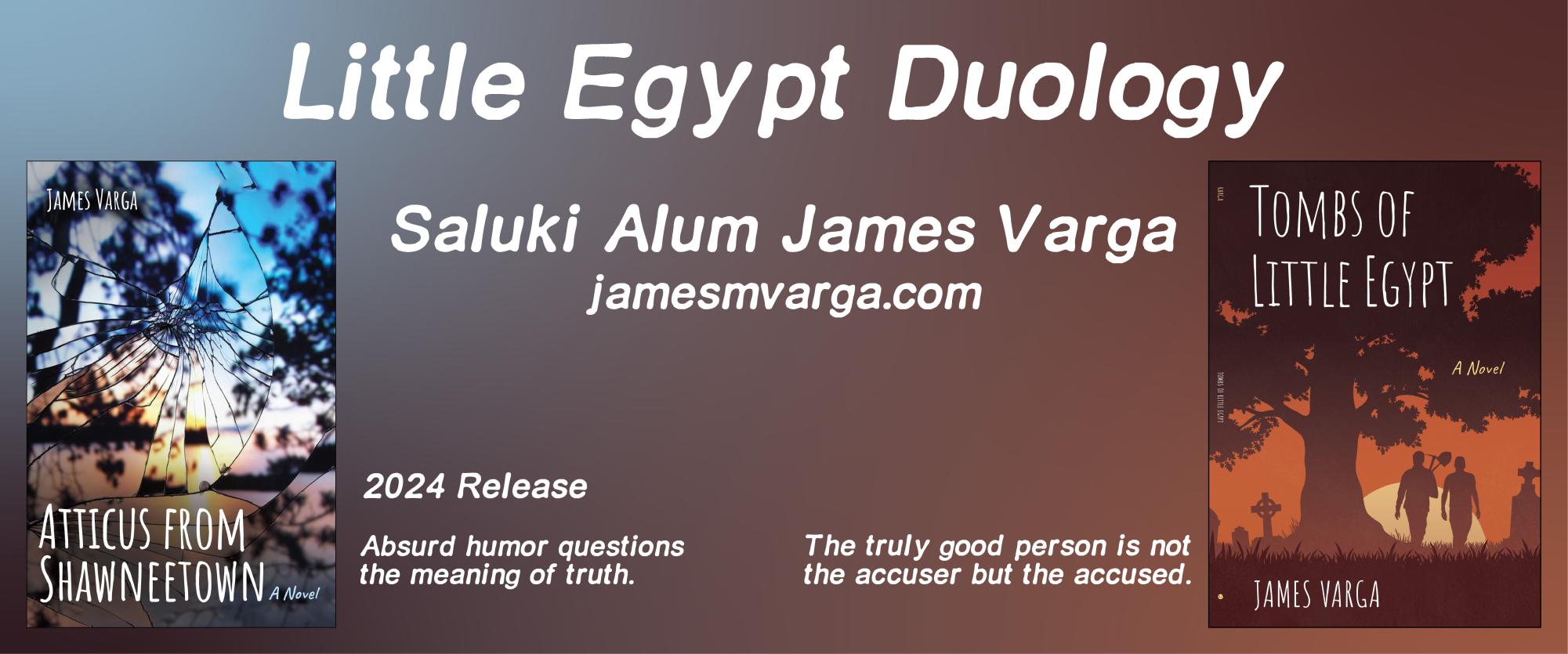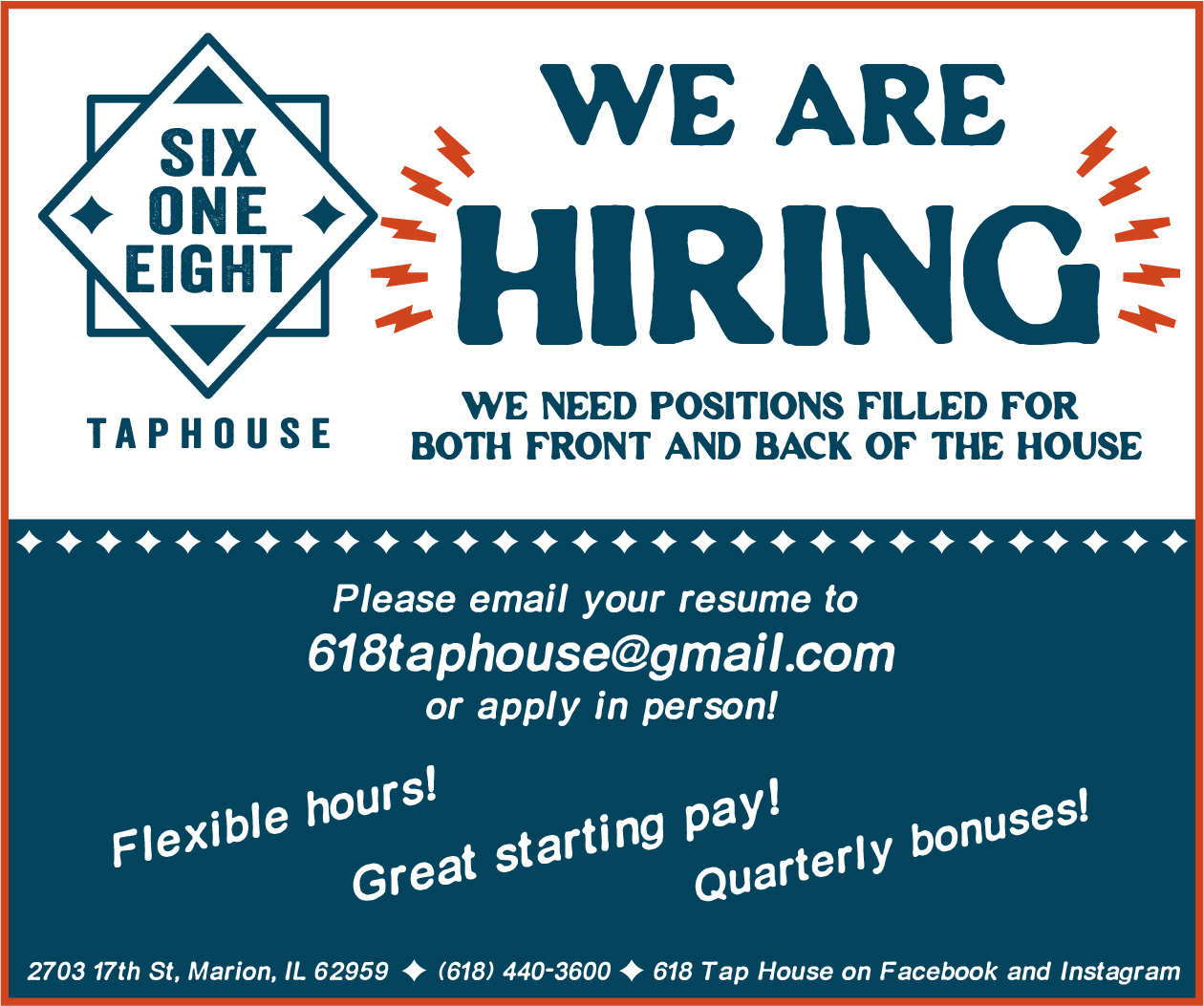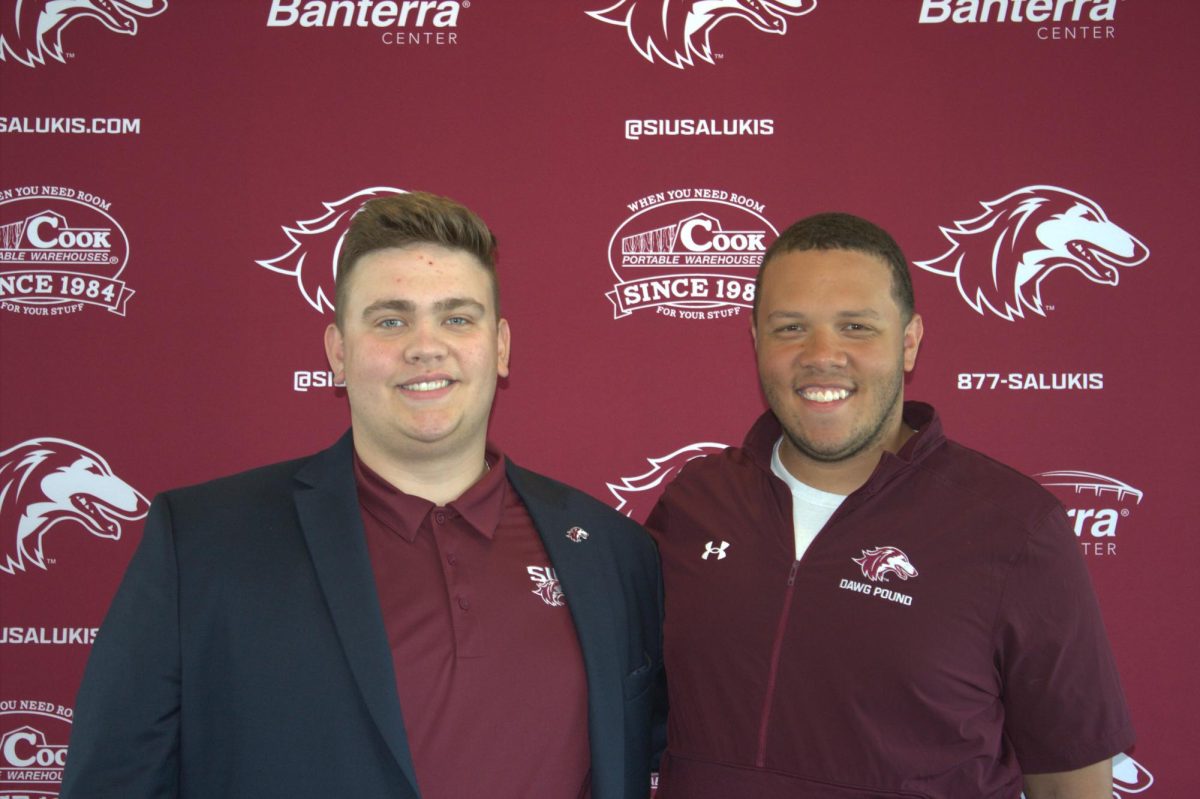Competition sparks ideas for social, environmental change
October 23, 2013
Five finalists are competing to make their own impact with innovative ideas for social and environmental changes.
The second-annual Saluki Idea Competition is a contest in which students teams compete for prizes by submitting “commercially viable, technology-based ideas related to the competition theme.“
The theme this year is “Innovating for Impact” and entries must have a positive social and/or environmental impact. The top five out of 11 student teams were chosen Monday to compete for cash prizes and grants based on their three-minute elevator pitch given at the Technology and Innovation Expo Friday.
Advertisement
Amy McMorrow Hunter, technology transfer specialist, said her department picked this year’s theme to motivate students to center their ideas on something they care about.
“We wanted to have a theme that means something to students,” McMorrow Hunter said. “Students care about the environment, they care about social problems, so we wanted to bring that into this competition.”
First prize receives $1,100 cash and grant money; second place receives $600 and the other three finalists get $50 for honorable mentions.
Last year’s winning team was comprised of senior industrial design majors Claude Leco, Gene Park, and Eric Sia. Their idea “Ecolight” won them funds for memberships for themselves and other SIU design students in the Industrial Designers Society of America Association. Ecolight is awaiting an approval for a patent.
Claude Leco, and team partner Gene Park, both seniors studying industrial design, are participating again this year and created the idea “Renew” that focuses on increasing recycling in Carbondale.
Leco said giant quick response, or QR codes would be strategically placed around the community and for one day only, all SIU employees and Carbondale business employees will wear a shirt with the QR code printed on them. The code, he said will direct users to a website that has a goal to change views regarding recycling and sustainment to our planet.
“This product fits both social impact and an environmental impact because people will interact with the product and incorporates recycling,” Leco said. “We are even thinking about ideas of incorporating an application that may be used to track the recycling, allowing for friendly competitions to see who is recycling more office to office or city to city.”
Advertisement*
Leco said he and his teammate hope to gain experience in their field through their idea.
“We hope to get more experience with designing a product from the ground up that can be produced and sold locally,” Leco said.
Another idea focused on environmental change as well, but with the focus centering in on alternative energy.
David Schau, a senior studying architecture from Lindenhurst, is the creator of the “Solar For All” idea. He said Solar for All is a company that tries to give homeowners easy, affordable solar energy to power their homes.
Schau said Solar for All proposes to construct the solar panels on homes with no cost to the homeowner and then sell the energy the solar panels produce.
After the money spent on construction of the solar panels was made back on top of a set return that would be determined at the initial contract signing, Schau said the solar panels would then become the homeowner’s property.
“The solar energy will be used for the them to power their homes cost free for the rest of the life span of their panels,” Schau said.
As an architecture major, Schau said he tried to incorporate his major to achieve sustainable energy through building design and in general, a requirement for alternative energy needed to be put into place.
“If this entire planet can be powered off of sustainable power, every living organism will benefit,” Schau said. “In all reality, this idea can be put into a business if there is a strong interest, but the bigger goal is to just try and educate people that we have to start seeking alternatives to how we consume electricity and power.”
As far as the theme goes, Schau said his idea is trying to innovate to avoid impacts such as global warming and climate change.
Abdiel Quetz, a graduate student in physics from Champton Campeche, Mexico, along with teammate Felipe Paulino Silva are not looking to avoid impact like Schau.
Quetz said farmers around the world need affordable ways to pump underground water to irrigate their crops. He said his idea, “Solar Radiation Water Pump for Developing Countries or Off-grid Communities” responds to the challenge farmers face by using a low-cost and low-maintenance steam pump powered by solar heat.
Besides farmers, Quetz said communities that do not have access to electricity or gas in developing countries could use his idea for water sanitation.
Quetz said his idea fits the theme of “Innovating for Impact,” because it gives people from low economic circumstances equal access to clean water without altering or polluting the environment.
“The proposed system will deliver clean water to many homes for domestic use as well as for sustainable agriculture,” Quetz said. “Having accessible water will improve sanitation among family members and, as a result, prevent sickness.”
The other two finalists put a more direct focus on social change.
Briana Royster, a senior studying industrial design from Flossmoor, is on the team “D.Scribe.“ She said D.Scribe is a communication system that allows hearing-impaired individuals to have access to accurate transcriptions of conversations in the workplace by using portable microphone devices and a transcription application.
Royster said D.Scribe’s usefulness extends outside the workplace and beyond the hearing impaired.
“We came up with this idea by brainstorming about a product that could help hearing-impaired people in the workplace and also help other people inside and outside the workplace as well, to make the design more universal,” Royster said. “Everyone can benefit from having an important conversation transcribed and saved on their smart device, to read at anytime.”
Besides people with impaired hearing, Royster said people with autism and brain damage could also benefit.
“This fits the current theme of “Innovating for Impact” because communication accommodations are useful to everyone, not just the hearing impaired, this concept has the potential for huge social impact,” Royster said. “This impact could be measured by increased communication, productivity, and accessibility in the workplace.”
Royster’s fellow teammate in the D.Scribe project is Christopher Faller, a senior studying industrial design. Both she and Faller hope they can add D.Scribe to their portfolios so that they can start their careers as industrial designers as soon as possible.
Royster and Faller look to improve communication, another finalist looks to empower the consumer.
Azadeh Omrani-Kermani, a graduate student in business administration from Kerman, Iran, said the goal of her project, “PowerPrice” is to create a better world for consumers who spend a large amount of time searching for the lowest prices. With Power Price, customers ask for items with the price they are willing to pay, and businesses that match those requirements would seek out those customers to offer their products to.
“Here the customers are the selector of business, product, and price,” Omrani-Kermani said.
Omrani-Kermani said the target audience for PowerPrice is students.
“They do not need to search every website for their required product and choose among various prices,” Omrani- Kermani said. “They could just mention their product and their affordable price and the retailers or producers could suggest their product that suits the price.”
Omrani-Kermani said she wanted to give the power to customers in her idea.
“This idea will empower consumers to get their products with required features with a better price for the things they need and empower Businesses to find customers’ requirement and concerns,” Omrani-Kermani said.
Advertisement









